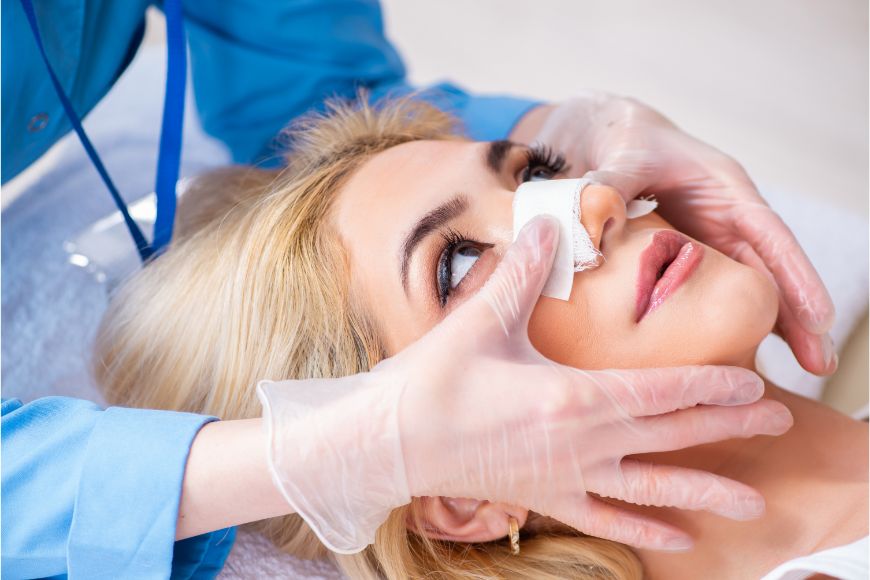The popularity of cosmetic surgery continues to increase worldwide, with more people looking to undergo procedures to improve their appearance. In 2022, there was an 11.2% increase in plastic surgery procedures, with 14.9 million surgical procedures being performed worldwide. The phenomenon of plastic surgery is becoming more normalised and less of a taboo topic.
If you’re thinking about undergoing plastic surgery, there are several things you should think about and consider beforehand. Once you have considered everything, you can then make an informed decision about whether or not plastic surgery is for you. If you book a consultation, an experienced surgeon will walk you through the process to help you make an informed decision.
In this article, we will run through what you should consider before your plastic surgery procedure. Continue reading to find out more.
Speak to an expert
Speaking to a professional is the best way to understand more about a procedure. They can talk you through the process and give you a step-by-step guide as to what will happen. You can talk to them about why you want the procedure, what you expect to happen, the do’s and don’ts of pre-op, the recovery process and more.
Accredited professional surgeons should have the expert knowledge that you require to make an informed decision about a procedure. They will help give you peace of mind and give you adequate time after a consultation to make a decision.
Choose the right practitioner
When it comes to choosing who you will go to for your plastic surgery, you must choose someone who is reputable, safe and qualified. They should ideally have many years of experience and have the right insurance in place to cover anything bad that might occur.
All clinics that offer plastic surgery must be registered with the Care Quality Commission (CQC). You can check if any clinic is registered, as the CQC publishes quality ratings online. You can also ask them to show you their CQC certificate to confirm that they are legitimate.
Consider the costs
The majority of cosmetic procedures are not covered by health care systems and must come out of your pocket, so it’s important to understand how much a cosmetic procedure costs. The total cost of your procedure includes the surgery itself and any aftercare that you may require. Some clinics will offer package pricing for their procedures to avoid hidden extras.
Procedure risks
No matter the surgical procedure, there are always risks. Plastic surgery procedures can be complex, as they can alter sensitive structures near major organs or delicate tissue. Healthy areas of your body will be altered through cosmetic surgery so it’s important to understand if changing these areas is worth it.
The type of surgery, your health history and your lifestyle are all factors that can increase/decrease the chance of complications. The obvious risk is not looking the way you want after your procedure, but there are also more serious health complications that could occur.
Recovery time
Recovery times for plastic surgery can vary depending on what procedure is undergone, with recovery times ranging from a few days to around 6 months. On average, it takes around two weeks for your natural energy and tissue vitality to be restored for most surgical procedures. Piezo rhinoplasty is a great example of a procedure whereby you can be through the hardest periods of recovery within two weeks.
Your age, weight and overall health will also play a factor in how long it takes you to recover. If you are the optimum number for all of these, your recovery time should be quicker, as it makes it easier for your body to heal itself.
Post-op care
Before you have your surgery, you should consider what post-op looks like. For the first three days after the surgery, it is recommended that you have someone take care of you and do things such as wake you up for medication, help you to the bathroom, prepare your food and help you with potential emergencies.
It is also recommended to eat lightly for the first 24 hours after surgery; taking medication on an empty stomach can cause nausea and dizziness. Drinking plenty of water throughout your recovery will also help.
When it comes to dealing with any dressings or drains, you must carefully follow any instructions given to you by your surgeon. You should also follow surgeons’ advice regarding exercising, driving, smoking and any other activity.
Final Thoughts
When undergoing surgery for cosmetic reasons, you should always weigh up all of the options. This should never be a split decision, as it’s not only a permanent decision but it can cost a pretty penny. We would always suggest you pick a surgeon who understands your needs but also has a highly reputable reputation. There are some key things you should never compromise on and if it costs a little bit extra for that security, then we would always recommend you do. Your happiness is the key thing here so pick who and what feels right for you.



